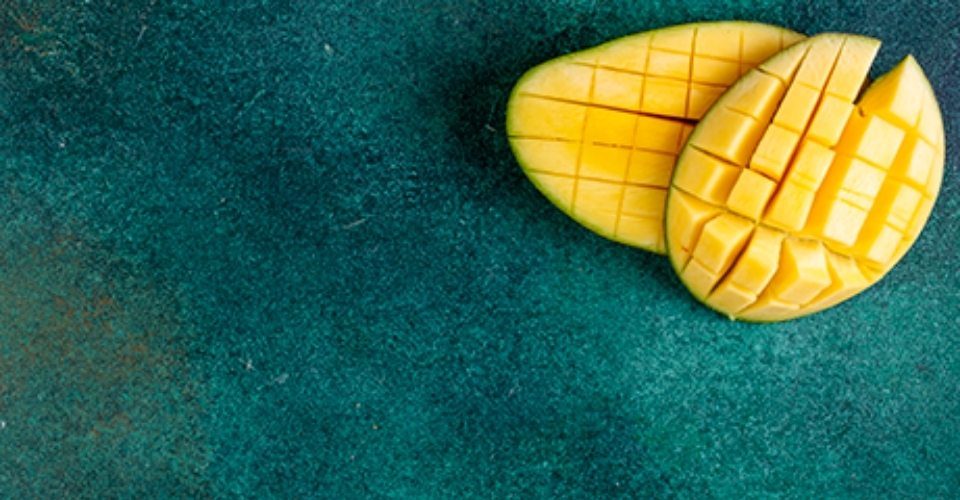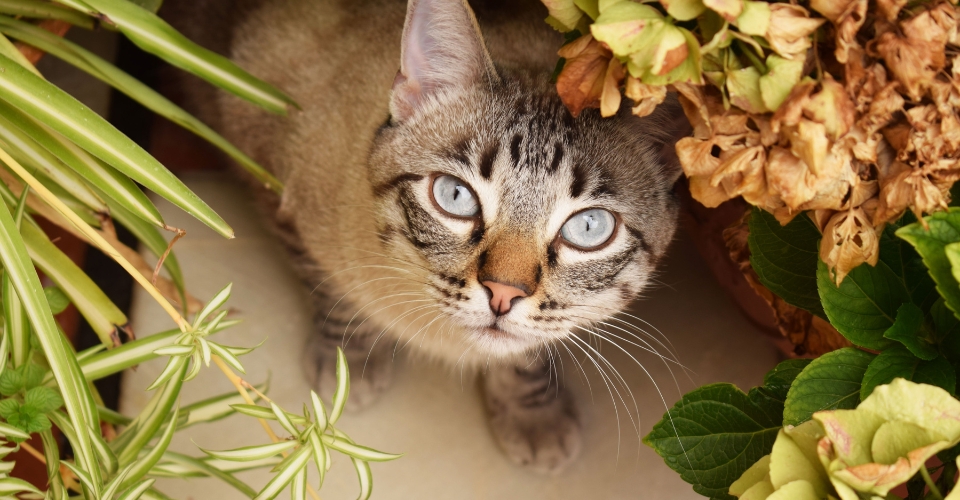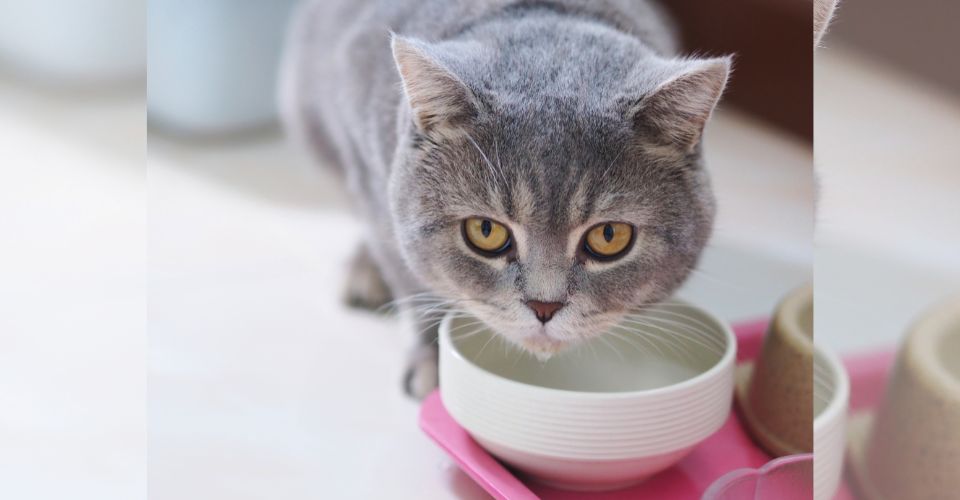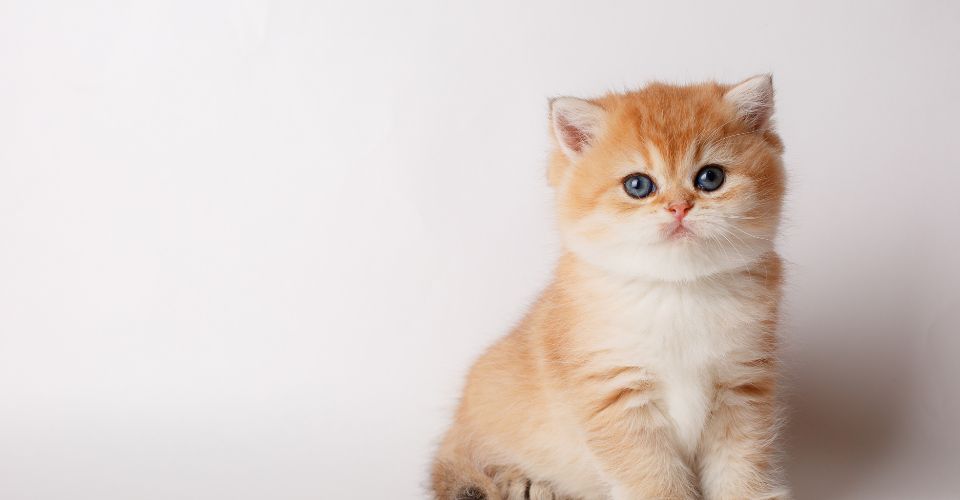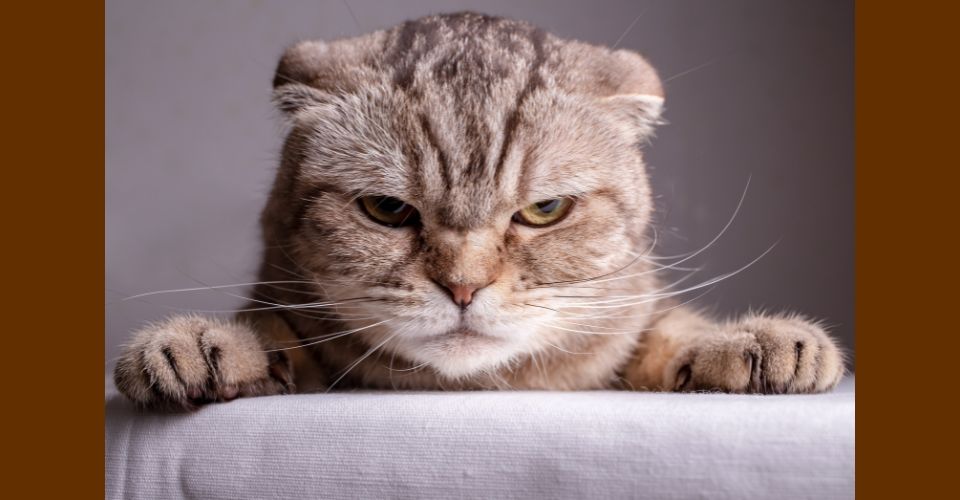Have you ever noticed your cat intentionally staring at you chopping mangoes on the kitchen table? Her stare might make you ponder, can cats eat mango, or is mango bad for cats?
Mango is the ultimate summer treat, at least for humans. The bright yellow flesh, the sweet-citrusy taste, the pulpiness, and its tropical feel make mangoes one of our favorite fruits. However, in the United States, mangos have become popular only in recent decades. According to Statista, the per capita consumption of fresh mangoes has increased from 1.75 pounds in 2000 to 3.25 in 2019.
For mango lovers who are also cat owners, it is crucial to know if the fruits they are keeping in their homes are safe for their four-legged humans or not. Our feline friends are known for their curious and mischievous natures. For them, everything is either a plaything or something to eat. Therefore, human foods that are not good for cats must be kept out of their reach.
You are here to learn about cats and mangoes, so let’s get into the nitty-gritty of cats eating mangoes.
Can Cats Eat Mango?
Yes, cats can eat mangoes—it is not toxic to cats. So if you are chopping juicy mangoes on the kitchen table and your cat has constantly been staring at you or pawing your leg, meowing—asking for a bright yellow piece of the mango flesh—you do not have to guiltily refuse her a slice. Instead, you can let her have some small cubes or slices of mangoes with you. There is no harm in a cat eating mango until it’s being done in moderation.
Can Kittens Eat Mango?
If your kitten has accidentally eaten a small piece of mango, there is probably nothing to be concerned about. However, you should become extra observant of her behavior and health, as it may upset her stomach. If your kitten shows any signs of sickness, you should take her to the vet.
On a general note, it is advised that baby kittens are only given the kitten food as they have special nutritional requirements that can only be met with their specialized food. Secondly, kittens have very fragile internals; giving her anything other than kitten food may upset their fragile stomach.
If your kitten has never had mango before, you should ask your vet before giving her a piece. You may find the same answer on the Internet, but keep in mind that information found on the Internet may not always be a substitute for a vet’s opinion.
Can Cats Eat Dried Mango?
While cats can have the meaty part of fresh mango, they should not be given dried mangoes. It is not only harder for cats to digest but also contains several preservatives that may be harmful to your cat’s health. So if you want to share mango with your cat, a fresh one is the safer option, and that too in moderate amounts.
Do Cats Even Like Mangoes?
There might be exceptions, but cats usually do not like mangoes. Actually, cats are sweet-blind – they do not have the receptors for sweetness. Their indifference to the sweetness of mangoes makes them uninterested in mangoes.
If your cat loves mangoes, you might think if your cat has, probably, a sweet tooth. No, your cat does not have a sweet tooth. She may have some peculiar reasons for liking mangoes. It might be the meaty texture of the mango flesh or the bright yellow color that is enticing for your cat.
Is Mango Good For Cats?
Mangoes are not only refreshing but are also loaded with useful nutrients and minerals, especially for humans. But can our feline friends eat mango to gain from its multiple nutritional benefits?
Where mango is an excellent source of vitamin C for humans, cats do not need Vitamin C from external sources—they synthesize their own vitamin C. Therefore, cats do not really gain much nutritional benefit from eating mangoes.
Is Mango Bad For Cats?
We have discussed above that mangoes are not toxic to cats, but this does not mean that you can throw a whole mango at your cat. It can prove to be perilous for your cat. Cats can safely eat only the mango flesh and that too in moderation—if consumed in excess, cats could face several health issues, such as diabetes, weight gain, gastrointestinal pains, and diarrhea, etc.
The Mango Peel and Pit
While the mango flesh is safe for cats to eat, the pit and peel are not suitable for our feline partners. The leather-like mango peel is not easily digested and may even pose a choking hazard to cats. Similarly, the pit also poses a choking hazard. On top of that, where the mango pit contains cyanide, the peel contains phenolic compounds toxic to cats.
Can Cats Have Mango Ice Cream?
Is mango your favorite ice cream flavor? It may be. If it is, you may like to find out if it is suitable for your cat too. Can it help to cool down your cat on a hot summer day? One might think that if mango is safe for cats to eat, mango ice cream will also be safe. But unfortunately, this is not the case. Mango ice cream is hazardous for cats. Actually, it is not the mango, it is the milk in the ice cream that is not good for cats.

Contrary to the prevalent belief, milk is not good for cats. Cats are, in fact, lactose intolerant. So the lactose sugar in the ice cream would upset your cat’s stomach and may cause vomiting and diarrhea. This is the reason that vets suggest using almond milk for cats instead of cow milk.
How to Give Mango to Your Cats?
To begin with, you should only give it to them occasionally as a treat, in moderate amounts. But the question is: How to give it to them?
To give mango to your cat, you should peel it off and cut the mango flesh into smaller cubes or slices, which are easy to chew and digest. Smaller pieces would also lessen the chances of the fibrous content of mango upsetting your cat’s stomach.
If your cat has never eaten mango before, keep an eye on her after she eats a cube or two. If she doesn’t develop any issues, you can keep feeding her mangoes occasionally. Can cats eat mango? Yes. But always remember that cats are obligate carnivores, meaning that they need meaty protein to stay in good health. These nutritional requirements of cats are only met by conventional cat food. So you should not make mango or any other human food a part of their routine diet.
Find out what other foods cats can eat or not eat:

